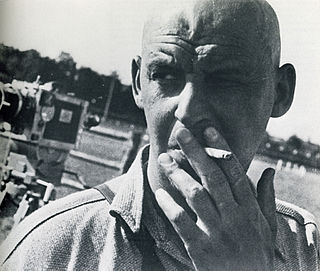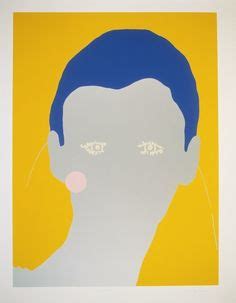A Quote by Henri Cartier-Bresson
All I care about these days is painting — photography has never been more than a way into painting, a sort of instant drawing.
Related Quotes
I was always interested in drawing and painting. I enrolled in college to study painting. But I didn't have any livelihood when I graduated. My mother died very young, and I didn't have any home, so I had to find a way to earn a living. It seemed to me that photography - to the great disappointment, I have to say, of my painting teacher - could offer that. So I went and did a degree in photography, and then after that I could go out and get paid for work. For portraits, things like that.
All that stuff about flatness - it's this idea that painting is a specialized discipline and that modernist painting increasingly refers to painting and is refining the laws of painting. But who cares about painting? What we care about is that the planet is heating up, species are disappearing, there's war, and there are beautiful girls here in Brooklyn on the avenue and there's food and flowers.
When I am in a painting, I'm not aware of what I'm doing. It is only after a sort of 'get acquainted' period that I see what I have been about. I have no fears about making changes, destroying the image, etc, because the painting has a life of its own. I try to let it come through. It is only when I lose contact with the painting that the result is a mess. Otherwise there is pure harmony, an easy give and take, and the painting comes out well.
I want to enjoy the languor of just living, recognizing, acknowledging, taking it in, sort of amplifying it in some way. [Photography] is a great medium for that. It happens in an instant, but it gives you hours or days of time to reflect on things. It’s a beautiful system, this game of photography, to see in an instant and go back and think about later on. It’s pure philosophy. And poetry.
Personally I would like to have pupils, a studio, pass on my love to them, work with them, without teaching them anything.. ..A convent, a monastery, a phalanstery of painting where one could train together.. ..but no programme, no instruction in painting.. ..drawing is still alright, it doesn't count, but painting - the way to learn is to look at the masters, above all at nature, and to watch other people painting.
We struggle against easel painting not because it is an aesthetic form of painting, but because it is not modern, for it does not succeed in bringing out the technical side, it is a redundant, exclusive art, and cannot be of any use to the masses. Hence we are struggling not against painting but against photography carried out as if it were an etching, a drawing, a picture in sepia or watercolor.




































